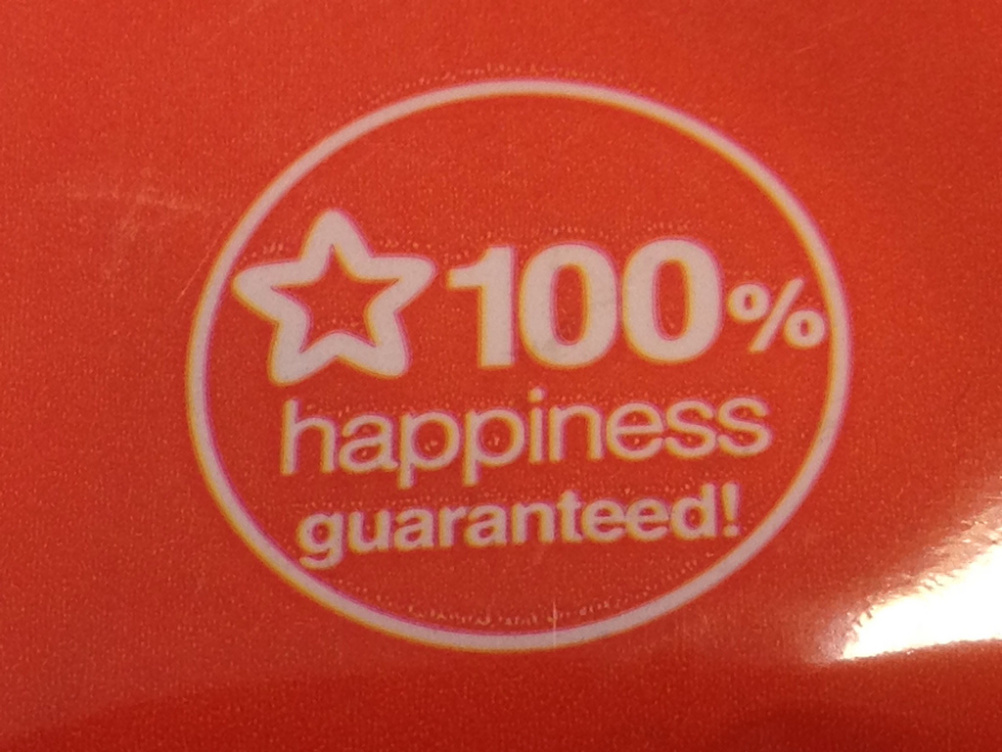Do we want happy, vacuous brands?
True North’s Sara Johnson looks at brand tone of voice, and whether ‘happy’ is really a good default.

Source: renaissancechambara
Logos, colours, templates – all elements commonly associated with a brand identity. But what about tone of voice? Tone of voice is an easily overlooked part of branding, but if we are to follow the oft-used analogy that a brand is like a person, do we want a world full of beautiful, but vacuous people?
As our relationships with brands are increasingly lived online, how brands speak to their audiences is more important than ever. For a brand to form genuine relationships, it has to have a genuine personality.
As a new piece of research is released claiming that happy brands are more successful brands, it does make me question, do we really want all of our brands to be happy? I quite like my pension provider being a bit earnest, my courier company behaving like Miss Moneypenny, and my car breakdown service feeling like a favourite uncle. Is happiness always fit for purpose?
But how do you get to grips with your tone of voice? How do you find a voice that is truly yours? In a world where it has become the default to have a friendly, accessible (dare I say, ‘Innocent’?) tone of voice, how do you differentiate yourself from the rest and ensure that you are heard in the world of noise?
In Brand Language, Liz Doig describes the way we speak as an expression of our personality – the words we choose and how we say them reveals a lot about who we are. Two people can have the same opinion but the way they choose to express those views can be completely different depending on their personality. For instance, we might find two identical twins who each communicate very differently – one may make points with humour and warmth, while the other may be more forceful and opinionated. Similarly we might find two brands with exactly the same values, but their personality and tone of voice will affect how they choose to express them and therefore pull them apart, enabling true differentiation.
So with that in mind, the key to defining your tone of voice has got to start with a bit of soul-searching and defining who you really are. Imagining your brand as a person is a particularly useful exercise. Picturing what they wear, brands they like, books they read and so forth can really help in understanding their personality and how they would communicate. The more specific you can be in defining that personality, the more unique and ownable your tone of voice will become.
As with all aspects of brand behaviour, your brand’s voice has to be genuine and consistent or you will be very quickly exposed. We like to know where we stand with our brands, just as we do with people, and if they start to behave erratically then we start to lose faith and may even avoid them altogether. So to form genuine, positive relationships with your audiences, a recognisable, believable and consistent tone of voice is a must, not a nice-to-have.
Sara Johnson is marketing director at True North.





I recently wrote my degree dissertation on this subject and think the reason many brands fall down in this arena is that they focus too much on this idea of consistency and this leads to an inhuman tone. People are not consistent and to personify a brand I think the tone of voice needs to adapt in the same way as a human’s does.
This means that for different platforms and different audiences there will be inconsistencies, in the same way that we adapt to different social situations. However I agree that there should be an overarching coherency to tie the brand together.
I think the public is beginning to reject brands that choose a ‘chummy’ voice on an open platform (such as brands imitating innocent’s packaging copy – as discussed on Radio 4 last night, or Vauxhall’s ‘reason to be cheerful’ advert that generated huge amounts of hatred on their youtube channel.) I’d argue that an overtly friendly tone of voice should be kept to platforms where the consumer has chosen to engage with the brand, such as on social media sites.
Brand tone is a very important consideration. The sales reps for Target at http://www.truenorthbrands .com always consider brand tone when reviewing new products to sell at retail. The brands under management always get review to better understand the brand tone, placement and retail price points. Great article